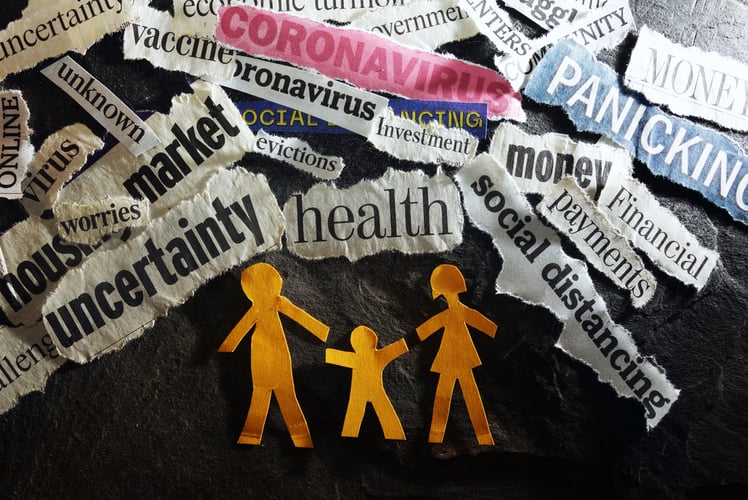What are Learned Helplessness and Defeat Stress in the Age of COVID?
- Home
- Blog

According to Lewis & Clark College president, Barry Glassner, a leading sociologist and author of The Culture of Fear, it’s fear, not coronavirus, that is upending daily life. Some fears are rational, and some are not. “Most Americans are living in the safest place at the safest time in human history.” So why are so many Americans, among them many of the new patients coming in to see me, feeling so anxious?
In a prior blog I characterized COVID as the “ultimate bully,” causing excessive amounts of fear and anxiety, as it induces both learned helplessness and defeat stress. How can we better understand anxiety, learned helplessness, and defeat stress; and what can we do about them?
Anxiety is an inevitable experience of everyday life, and a certain level of anxiety is normal. That said, excessive anxiety may have deleterious effects on your health if it goes untreated. With sufficient frequency and intensity of anxious experiences–whether emotional or physical–an anxiety disorder may develop in vulnerable individuals.
Learned helplessness and defeat stress are two stressors in particular that can result in higher levels of anxiety. In this blog, we’ll take a look at both of them, and determine what you can do to fight off their negative impacts on your health.
Learned Helplessness and Defeat Stress, Defined
Learned helplessness and defeat stress are two common forms of stress that can cause the DNA in brain cells to produce fewer neuroprotective proteins, which in turn can lead to consequences like inflammaging and other chronic conditions and mental health concerns over time. So what are they, exactly?
Learned helplessness results when we are repeatedly subjected to environmental stressors that leave us feeling powerless and trapped. This is the kind of chronic stress that arises when we feel we have no control over our situation, and that our negative environments or circumstances are inescapable. Think, “COVID.”
Defeat stress develops when we feel repeatedly defeated or "beaten down." In these cases, individuals may develop anxiety or depression in response to their continued stressors, as well as a feeling of passivity and dejection over their life circumstances. Think, “COVID variants” that keep popping up every few months, seemingly out of nowhere.
Both learned helplessness and defeat stress can lead to negative mental health outcomes. Read on to find out how your genes may be making you more susceptible to both types of stressors.
BDNF and Anxiety
Your BDNF gene plays an important role in providing the same neuroprotective proteins that learned helplessness and defeat stress can slowly diminish over time. By nourishing our brain cells with more BDNF, these proteins can protect them from injury due to oxidative stress and inflammation. That said, certain variants of the BDNF gene may predispose you to lower-than-average neuroprotective proteins, making you more susceptible to the crippling effects of these two types of stressors.
High levels of anxiety can be evaluated and treated using Root Cause Psychiatry, which includes genetic testing of BDNF and other genetic variants, as well as other diagnostic tests to determine the “root cause” of your concerns. Effective treatment has actually been shown to increase levels of BDNF in the brain, leading to greater life satisfaction and improved longevity.
Don’t Let Yourself Be Defeated by Defeat Stress and Learned Helplessness
As I mentioned at the beginning of this blog, some level of anxiety in daily life is normal. Chronic anxiety, however, can wreak havoc on our lives. Contact Potomac Psychiatry to learn more about how we can help you fight chronic anxiety and help you take back your happiness.
.png?width=144&height=144&name=Untitled%20design%20(34).png)



